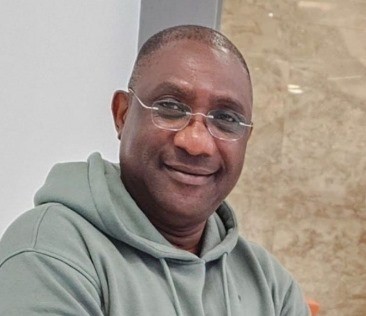By Sammy CRABBE
We’ve talked about reimagining our public universities through global partnerships, retooling technical and vocational education, empowering private universities, and launching a bold Digital National Service Corps.
But none of this will succeed – not even the best infrastructure, not the most brilliant curriculum – if we fail at one thing: governance.
Education governance in Ghana is not just broken; it has been compromised by decades of politicization, nepotism, and mediocrity. We have turned one of our most strategic sectors into a reward scheme for party foot soldiers, instead of an incubator for national talent.
And we wonder why our learning outcomes are poor, our best teachers demoralized, and our graduates disconnected from opportunity. It is time to fix this. Because if we don’t, every reform will collapse under the weight of weak leadership.
Political appointments: the root of the rot
Let us speak plainly: too many individuals appointed to lead our educational institutions and agencies have no business being there. Some have never run a classroom, let alone an institution.
Others have failed at managing their personal lives or businesses but are suddenly trusted to oversee public entities responsible for shaping millions of minds.
We have seen party activists with no academic experience appointed to sensitive boards. Radio panellists elevated to vice-chancellorships. Individuals who couldn’t qualify as supervisors in their own fields made CEOs of state agencies – just because they joined a campaign or held a placard.
This must stop. You cannot build a 21st-century education system with 19th-century patronage politics.
Governance must shift to a merit-based, professional system
We need to implement a national education leadership framework that prioritizes expertise, experience, and performance. Here’s what that would look like:
- Independent education leadership commission: Establish a bipartisan, independent commission to vet and recommend appointments for key education positions – similar to the way some countries nominate central bank governors or electoral commissioners. The commission should include education experts, retired vice chancellors, teacher union leaders, private sector representatives, and diaspora academics.
- Leadership qualifications bill: Parliament should pass a law that outlines minimum qualifications and experience for all leadership roles in educational institutions and agencies. You want to run a technical university? You must have managed an academic institution or held a senior research or innovation role in industry. You want to chair a school board? Demonstrate strategic planning and governance credentials – not party loyalty.
- Performance-based appointments: All leaders must operate on performance contracts. Deliver results or be replaced. Annual scorecards should be published publicly – covering financial management, academic quality, innovation, student satisfaction, and graduate outcomes.
- Insulation from political interference:Educational institutions must be allowed to recruit, retain, and discipline staff without directives from political offices. If a vice chancellor can’t discipline a staff member without calling a regional chairman first, then we have already failed.
Let agencies be led by experts – not politicians
Ministries are political. That is understood. Ministers and deputy ministers are appointed to drive a government’s agenda. But agencies, institutions, and regulatory bodies should be professional, independent, and stable across political cycles.
If someone’s only qualification for running a national agency is their campaign activity, we should not be surprised when the agency fails. We must stop viewing public institutions as political battlegrounds. They are national assets – and they must be run as such.
Restoring morale and retaining talent
The knock-on effect of politicized governance is that it kills morale. Competent professionals are bypassed, sidelined, or demoted simply because they are not “party people.” Talented young minds see no career progression unless they dabble in politics.
Our best lecturers are poached by institutions abroad because they know merit will be rewarded elsewhere. To stop the brain drain, we must start by restoring institutional dignity. Let educational careers be paths to honour, prestige, and national pride. Let competent people rise – not because of who they know, but because of what they’ve built, taught, or innovated.
We cannot digitize dysfunction
As we work to digitize the Ghanaian economy, we must not digitize dysfunction. E-governance is not simply about putting services online – it is about transparency, accountability, and efficiency. If the same old patronage systems are uploaded into shiny new platforms, the results will be the same.
That is why governance reform in education is not just about education. It is about nation-building. It is about transforming the culture of leadership in this country – starting with our schools, universities, and agencies.
Conclusion: The right people build the right system
Everything we have discussed in this series – public-private university partnerships, reimagined vocational training, STEM integration, the Digital National Service Corps – depends on the right people being in the right places.
If we fail to install principled, experienced, and visionary leaders, we will simply be building castles in the sand.
Leadership is not a political favour. It is a national trust. Let us rebuild Ghana’s education system not just with cement and curriculum – but with character, competence, and clarity of purpose. That is the only way we will create the future our children deserve – and the nation the world will respect.
>>>the writer is a PhD candidate specializing in blockchains and decentralized finance at the University of Bradford. He holds an MBA in International Marketing from the International University of Monaco. Sammy was the first president of the Ghana Business Outsourcing Association and developed Africa’s first data entry operation and Ghana’s first medical transcription company. He can be reached via [email protected]










